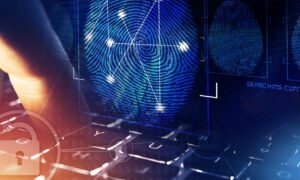The landscape of criminal defense is undergoing a significant transformation, driven by rapid advancements in technology. From the rise of digital evidence to the implementation of artificial intelligence in surveillance, these innovations are reshaping how legal professionals approach cases. This article explores how emerging technologies are impacting criminal defense strategies, the implications for justice, and the challenges that accompany these changes.
The Rise of Digital Evidence
Understanding Digital Evidence
Digital evidence encompasses any information stored or transmitted in digital form that can be used in a legal context. This includes data from smartphones, computers, social media, and cloud storage. As the world becomes increasingly digital, the volume of evidence available in criminal cases has surged, presenting both opportunities and challenges for criminal defense lawyers.
For instance, text messages, emails, and social media posts can provide critical insights into a defendant’s state of mind or establish timelines. However, the sheer amount of data can be overwhelming, requiring specialized skills and tools to analyze effectively. Defense attorneys must now be proficient not only in legal principles but also in understanding digital forensics. The role of digital evidence has evolved to such an extent that it often serves as the backbone of modern investigations, influencing jury perceptions and case outcomes significantly.
As digital communication continues to evolve, so too does the nature of the evidence that can be collected. For example, the rise of encrypted messaging apps and disappearing content on platforms like Snapchat has introduced new layers of complexity. Defense attorneys must be adept at navigating these platforms, understanding how data can be retrieved, and recognizing the implications of privacy settings and encryption on their cases. This knowledge not only aids in the defense strategy but also empowers attorneys to challenge the prosecution’s evidence effectively.
Challenges in Handling Digital Evidence
While digital evidence can be a powerful tool for defense, it also presents unique challenges. Issues such as data privacy, the admissibility of evidence, and the potential for digital evidence to be manipulated or misinterpreted complicate matters. Defense teams must navigate these complexities to ensure that digital evidence is used effectively and ethically. The potential for human error in the collection and analysis of digital evidence can lead to significant consequences, including wrongful convictions or the dismissal of critical evidence.
Moreover, the rapid pace of technological advancement means that legal standards often lag behind. Defense attorneys must stay informed about the latest developments in technology and digital forensics to advocate effectively for their clients. This requires continuous education and collaboration with tech experts, which can be resource-intensive. Attorneys may also find themselves needing to present complex technical information in a way that is easily understandable to judges and juries, making the ability to communicate effectively across disciplines an essential skill. As digital evidence becomes more prevalent in courtrooms, the demand for attorneys who can bridge the gap between law and technology will only continue to grow, shaping the future of legal practice in profound ways.
Artificial Intelligence in Surveillance
The Role of AI in Evidence Collection
Artificial intelligence is revolutionizing surveillance practices, enabling law enforcement agencies to collect and analyze vast amounts of data more efficiently. AI-powered systems can process video footage, recognize faces, and even predict criminal behavior based on historical data. This technology can enhance the ability to gather evidence, but it also raises significant ethical and legal questions.
For defense attorneys, the use of AI in surveillance can be a double-edged sword. On one hand, it can provide crucial evidence that supports a client’s innocence. On the other hand, reliance on AI can lead to over-policing and potential violations of civil liberties. Defense teams must be prepared to challenge the validity of AI-generated evidence, questioning its accuracy and the methods used to obtain it.
Implications for Privacy and Civil Liberties
The integration of AI into surveillance practices poses serious implications for privacy rights. As surveillance technology becomes more pervasive, concerns about the erosion of civil liberties grow. Defense attorneys are increasingly tasked with defending clients against evidence gathered through potentially invasive means, raising questions about the legality and ethics of such practices.
Furthermore, the potential for bias in AI algorithms can lead to disproportionate targeting of certain communities, exacerbating existing inequalities in the criminal justice system. Defense attorneys must be vigilant in scrutinizing the use of AI in their cases, advocating for transparency and accountability in the technologies employed by law enforcement.
Blockchain and Evidence Integrity
The Promise of Blockchain Technology
Blockchain technology, known primarily for its role in cryptocurrency, is emerging as a potential solution for ensuring the integrity of digital evidence. By creating a secure, immutable record of data, blockchain can help verify the authenticity of evidence collected during investigations. This could address concerns about tampering and chain of custody, which are critical in criminal defense.
Incorporating blockchain into the legal process could enhance trust in digital evidence, providing defense attorneys with a robust tool to challenge the validity of opposing evidence. As blockchain technology matures, its applications in criminal defense are likely to expand, offering new avenues for protecting clients’ rights.
Challenges in Adoption
Despite its potential, the adoption of blockchain technology in criminal defense faces several hurdles. Legal frameworks surrounding blockchain are still developing, and there is a lack of standardization in how it can be implemented. Additionally, the cost and technical expertise required to utilize blockchain effectively can be prohibitive for many defense teams.
Moreover, as with any emerging technology, the legal system must grapple with how to integrate blockchain into existing procedures. Defense attorneys must advocate for policies that facilitate the responsible use of blockchain while ensuring that it does not become a barrier to justice.
The Future of Criminal Defense
Adapting to Technological Change
The rapid evolution of technology necessitates that defense attorneys adapt their strategies and practices. Continuous education and training in emerging technologies are essential for legal professionals to remain effective advocates for their clients. Law schools and continuing legal education programs are beginning to incorporate technology-focused curricula, but there is still much work to be done.
Collaboration between legal professionals and tech experts will be crucial in navigating the complexities of digital evidence and AI. By fostering interdisciplinary partnerships, defense teams can enhance their understanding of technology and its implications for criminal defense.
Ethical Considerations
As technology continues to reshape the criminal justice landscape, ethical considerations must remain at the forefront. Defense attorneys have a responsibility to ensure that emerging technologies are used in ways that uphold justice and protect the rights of individuals. This includes advocating against the misuse of technology and ensuring that clients receive fair representation.
Ultimately, the intersection of technology and criminal defense presents both challenges and opportunities. By embracing innovation while remaining vigilant about ethical implications, defense attorneys can navigate this evolving landscape and advocate effectively for their clients.
Conclusion
The integration of emerging technologies into criminal defense is transforming the way legal professionals approach their work. From digital evidence to AI surveillance and blockchain, these innovations offer new tools for advocacy while also presenting significant challenges. As the legal landscape continues to evolve, defense attorneys must adapt, educate themselves, and advocate for justice in a technology-driven world.
By embracing these changes and addressing the ethical implications, the criminal defense community can work towards a more equitable and just legal system that respects the rights of all individuals.



































